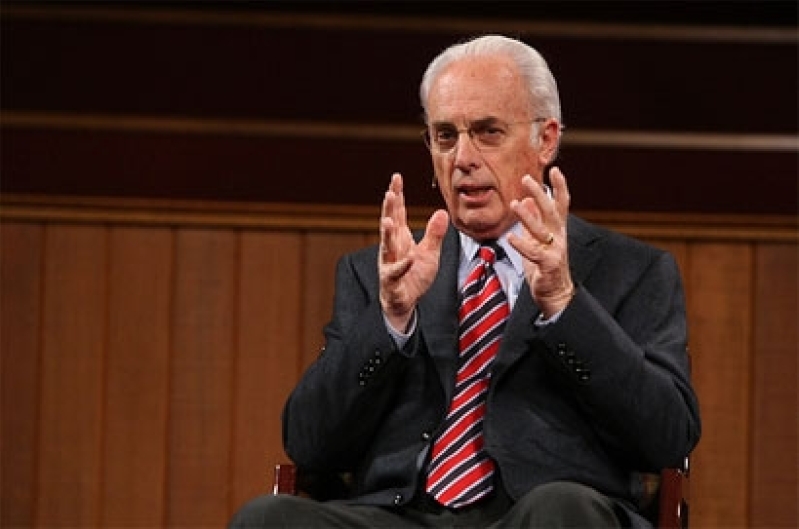
Influential Pastor John MacArthur has come out strong against young Christian leaders who insist that bringing alcohol into the context of ministry is necessary to reach more people.
"It is puerile and irresponsible for any pastor to encourage the recreational use of intoxicants – especially in church-sponsored activities," MacArthur, who leads Grace Community Church in Sun Valley, Calif., wrote in a recent blog post. "The ravages of alcoholism and drug abuse in our culture are too well known, and no symbol of sin’s bondage is more seductive or more oppressive than booze."
When the Southern California pastor set out to write the article, he was well aware that it would offend some people.
At the risk of "alienating" "an enthusiastic group of young reformers," MacArthur still went ahead with the post because "he cares," Travis Allen, director of Internet Ministry wrote Monday on MacArthur's Grace to You media ministry website.
Allen made it clear that MacArthur does not offer "candy-coated messages in pretty packages."
"He'll never tickle your ears," he described.
In his straightforward article, MacArthur was addressing the "Young, Restless and Reformed" community, particularly taking issue with their argument that "most good theological discussion has historically been done in pubs and drinking places."
"Beer-loving passion," he noted, has become a "prominent badge of identity" for many in that community.
"Mixing booze with ministry is often touted as a necessary means of penetrating western youth culture, and conversely, abstinence is deemed a 'sin' to be repented of," he wrote.
Drinking beer is just one of several activities that the young Reformed community has adopted and "redeemed," MacArthur pointed out.
"Tobacco, tattoos, gambling, mixed martial arts, profane language, and lots of explicit talk about sex," are some of the other activities.
To disapprove of any of those activities would result in being labeled legalistic, the Grace Community pastor said.
But the issue, he stressed, isn't whether these activities should be acceptable or whether they're even all out evil or sinful.
Rather, the question MacArthur poses is: Does the church want to be known for these?
"[W]e surely ought to be able to say that controlled substances and other symbols of secular society's seamy side are not what the church of Jesus Christ ought to wish to be known for," he detailed. "In fact, until fairly recently, no credible believer in the entire church age would ever have suggested that so many features evoking the ambiance of a pool hall or a casino could also be suitable insignia for the people of God."
Putting it bluntly, MacArthur, who has ministered to hundreds of former alcohol addicts, called pub outreaches and the like "bad missional strategy" and "a bad testimony" as it cultivates an appetite for beer or a reputation for loving liquor.
"This tendency to emblazon oneself with symbols of carnal indulgence as if they were valid badges of spiritual identity is one of the more troubling aspects of the YRR movement's trademark restlessness," he said plainly. "It is wrong-headed, carnal, and immature to imagine that bad-boy behavior makes good missional strategy. The image of beer-drinking Bohemianism does nothing to advance the cause of Christ's kingdom."
While some point to biblical times when Jesus drank wine, MacArthur quickly rejected the comparison, saying wine was necessary at the time for health reasons.
"The risk of amoebae and parasites in drinking water could be significantly reduced or eliminated by mixing the water with a little wine (1 Timothy 5:23). The result was a greatly diluted wine that had virtually no potential for making anyone drunk."
He added, "[T]here is no suggestion in Scripture that Jesus purposely assumed the look and lifestyle of a publican in order to gain acceptance in a godless subculture. He didn't."
In Monday's follow-up post, Allen acknowledged that some may view MacArthur's article as an attempt to "convert everyone into grumpy, fundamentalist teetotalers."
But he offered this to the young, restless and Reformed: "It’s not about stealing joy; it’s about promoting pastoral wisdom and compassion for people. Church leaders must consider the consequences of what they approve and promote."






